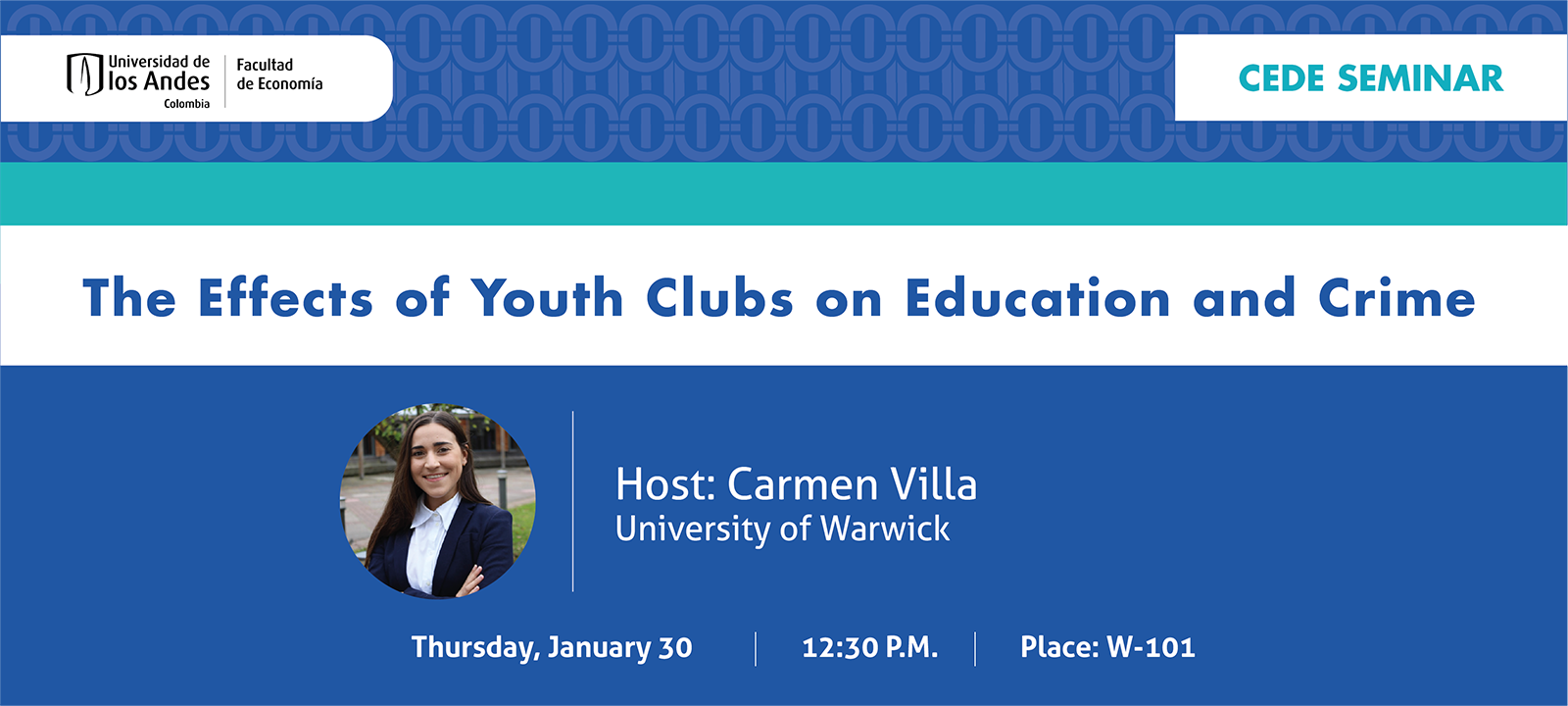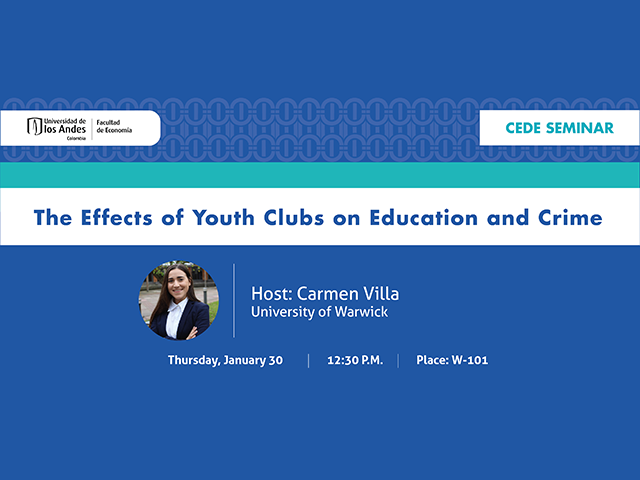CEDE Seminar - Carmen Villa

Youth clubs are community-based after-school programmes, typically offeredfree of charge to teenagers in underprivileged neighbourhoods. I provide the firstcausal estimates of their effects on education and crime, leveragingquasi-experimental variation from austerity-related cuts, which led to the closureof 30% of youth clubs in London between 2010 and 2019. I usedifference-in-differences research designs and novel data to compareneighbourhoods affected by closures with those unaffected. Teenagers in areasaffected performed nearly 4% worse in national high-school exams. Youths aged10 to 17 became 14% more likely to commit crimes. Youth clubs provide keysupport in a lasting manner, particularly to teenagers from low-incomebackgrounds. The effects are due to youth clubs offering unique amenities thatsupport positive behaviours rather than mere incapacitation. Closing youth clubswas not cost-effective; for every£1 saved from closures, there are associated lossesof nearly£3 due to forgone returns to education and crime costs.

